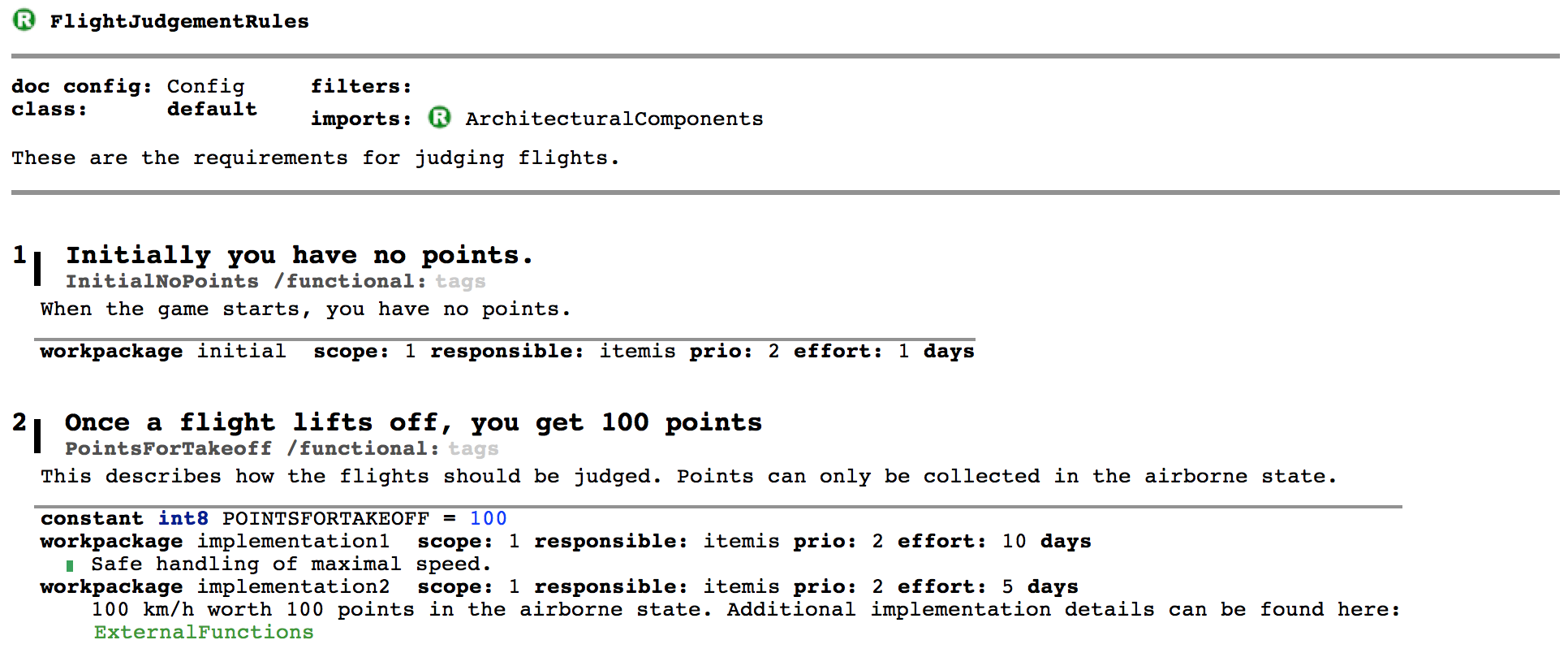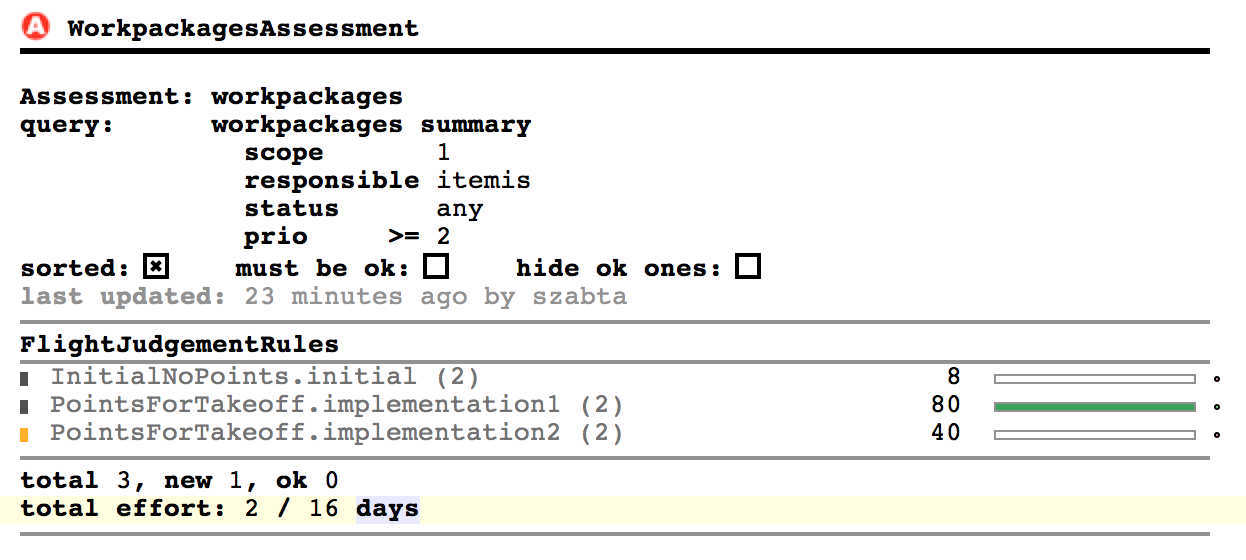MPS-IncQuery - talk at EclipseCon Europe 2014
At this year's EclipseCon Europe Tamas Szabo presented a talk about an integration project between MPS (and mbeddr) and the EMF-IncQuery (Eclipse) project. During the summer we had started working on the MPS-IncQuery project which aims to bring IncQuery’s powerful features to the world of the Meta Programming System (MPS). The need for such an integration between the two projects has risen from the context of mbeddr; specifically the graph query engine of IncQuery could come handy for many use-cases in mbeddr.
This includes assessments on requirements documents (the demo was about this use case), computing scoping information in the IDE to figure out what variables/functions are visible at a given point in the C code or to specify constraints. Additionally, projectional editing brings a whole lot of other usages where live maintenance of graphical viewers is important and the response time of the queries is crucial for larger diagrams and models.
The talk was rather technical, due to the complexity of the many involved projects and because we tried to give details on as many of the following challenges as we could:
- Mapping the Xtext language of the EMF-IncQuery project to the MPS world to be able to express the queries right in the workbench.
- In order to use the queries in the languages we needed to implement the code-generators. These generate Java code in the end, but due to MPS' nature the user will never interact with this code. This code will just be used to drive the query engine under the hood.
- Providing a type-safe API with an extension to the Java base language of MPS. Here, new statements have been introduced in MPS’ Java language to access the queries that you have written previously.
- MPS itself has also been extended with the Query Explorer view, which aims to ease the debugging of queries right in the IDE. It works similarly to a database browser with the functionality to automatically refresh the contents of the view when the underlying models are changed.
- Implementing the backend which is responsible for handling the notifications coming from the observed MPS models. Here, we tried to reuse as much as possible from the already existing EMF-IncQuery backend. By the way EMF-IncQuery is moving towards the refactoring that all kinds of model representations could be plugged in by simply rewriting the modeling-paradigm-specific parts of the backend (to handle the notifications, for example).
We also gave a short live demo during the presentation which was centered around the requirements engineering language of mbeddr. This extension is used by many end users of mbeddr to write requirements documents and create various assessments on them. An assessment is simply a query which reports certain program elements and constructs which satisfy given conditions. The following screenshots briefly describe the scenario:
-
The requirements document in mbeddr, where you can also see the workpackages with additional properties like responsible company, priority and scope.

-
The assessment container and the report inside it. The report has the same properties as the workpackages so that the user can specify the conditions and only those workpackages are listed in the result which meet these conditions.

Additionally you can see the query that we have written for the assessment. This establishes a connection between the WorkPackagesAssessmentReport and the WorkPackages.
We access the interesting properties (company, priority, scope) of these concepts and use check expressions to specify the conditions when a tuple should appear in the match set of the query.

Finally, here you can see parts of the Java code that is used in the language for the assessment.
In MPS you can write constraints and behavior methods (basically derived features) for you language in the Java language of MPS.
This language has been extended with additional constructs and types (in runtime) to access the matchers for the queries:
 Here, we create a matcher for our query and the scope of the query is specified as this.model which will
evaluate to the model of the given assessment during “runtime”. Runtime is quite interesting here, because everything
happens in the same JVM; query development, code generation and reloading of their classes and using the queries
for your own instance model. After this we create a partial match where we set the first parameter to be the
assessment and then we retrieve all the values for the second parameter which will be the workpackages found in the model.
Here, we create a matcher for our query and the scope of the query is specified as this.model which will
evaluate to the model of the given assessment during “runtime”. Runtime is quite interesting here, because everything
happens in the same JVM; query development, code generation and reloading of their classes and using the queries
for your own instance model. After this we create a partial match where we set the first parameter to be the
assessment and then we retrieve all the values for the second parameter which will be the workpackages found in the model.
Currently we are at the phase of trying out the possibilities with the project; we have already used it in the assessment language of mbeddr (as shown in the demo). The next step would be to reimplement the scoping computation in mbeddr with graph queries of IncQuery and perform some measurements compared to the old solution. Future work will investigate the usability for the graphical editors (this may also have impact on the commercial projects also). The integration project can be obtained from GitHub, while the modified assessment language and the other IncQuery related codes reside in a separate branch of the mbeddr repository.
This integration project faces a dual-licensing situation, where MPS is licensed under Apache 2.0, while all the other tools (EMF-IncQuery, MPS-IncQuery) are licensed under Eclipse EPL. We are planning to provide automatic builds for the project, these will be available through the mbeddr build infrastructure.